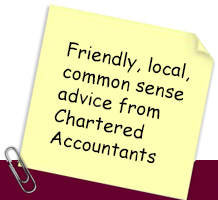http://www.bbc.co.uk/news/business-36440161
Category: Uncategorized
HMRC has published guidance for tax agents and advisers to help them manage the 31 January 2014 self assessment deadline. If individuals haven’t sent in their tax return yet they must be filed online by midnight on Friday 31 January 2014 to avoid a late filing penalty.
The new rules for repaying child benefit through the High Income Child Benefit Charge will mean there will be many taxpayers filing a tax return this year for the first time.
It is important for these taxpayers to be set up in good time if they have still to register for self assessment. To do this, use form SA1 Registering for Self Assessment and getting a tax return which can be completed and sent to HMRC online. It can take a few weeks to get the necessary Unique Taxpayer Reference and subsequently to register to file online.
Don’t forget too that the £100 fixed rate penalty for filing late is now levied regardless of whether or not there is actually any tax unpaid at 31 January. This will feel particularly harsh for taxpayers who are due a repayment.
HM Revenue & Customs has stepped up its campaign against tax avoidance, by issuing a document warning of the risks entering into contrived schemes.
The four-page leaflet entitled Tempted by Tax Avoidance? warns “anyone tempted to use a tax avoidance scheme should think very carefully about the costs, the disruption caused by having to deal with HMRC enquiries and potentially lengthy litigation”.
“There is a big difference between using tax reliefs and allowances in the way in which they are intended to be used, and trying to bend the rules to avoid tax,” it adds.
George Osborne is facing calls to introduce a simple flat tax system after it emerged that some middle income families are paying an effective rate of 73% because they have been deprived of their child benefit. Simon Walker, the director general of the loD, said that such a large “marginal” tax rates on hard pressed families who are struggling to make ends meet “degrades the motivation to work”.
Figures from Startup Britain have shown that Britons are on track to start more than 500,000 businesses in 2013, beating last years record.
Optimism among the UK’s entrepreneurs has risen to its highest level in five years according to a report by Deloitte. More than 80% of entrepreneurs believe that their businesses will grow by at least 10% over the next year. This is the highest number since the survey began in 2008. In addition, 56% of business owners said that they were confident enough to start dipping into their cash reserves to finance growth.
HM Revenue & Customs’s online services are to be suspended for three days from Friday 11 October as the department performs maintenance and upgrades on the site.
The work will mean many of the sites’ services will be unavailable during the time, although PAYE and RTI services will be unaffected.
The downtime will begin at 6am on Friday 11 October and run until 6am on Monday 14 October.
Interest rates will remain at 0.5 per cent until the employment rate has dropped to seven per cent, Mark Carney, the new Governor of the Bank of England has said.
He also said that the bank will not be reducing its £375bn asset purchase programme until that level is reached. The unemployment rate is currently at 7.8 per cent. Around 750,000 jobs will need to be created in order for the jobless rate to reach seven per cent, something which could take about three years, Carney suggested.
John Longworth, director-general of the British Chambers of Commerce (BCC), said that the governor’s decision to keep interest rates on hold will reassure business.
He suggested a fail in the unemployment rate to seven per cent is unlikely to happen in the next few years, so it looks as though interest rates will remain low for quite sometime.
Families paid more than £3bn IHT in the year to April – the biggest sum since the onset of the credit crisis.
The inheritance tax-take is climbing strongly again, official figures show, thanks largely to the recovery in property and share prices. An increased focus by HMRC on the collection of IHT could also explain the rise, accountants say.
Self-assessment taxpayers who have failed to submit tax returns are being offered the opportunity to settle their arrears in an HMRC campaign.
From this week, the campaign is aimed at people who have received a self-assessment tax return or notice to complete a tax return for any year up to 2011/12, but are yet to take action.
The scheme will see HMRC writing directly to several thousand people it has identified using intelligence-gathering software, before following up with calls to many of them.
This latest drive follows a similar initiative undertaken last year, which covered higher-rate taxpayers who had failed to submit 2008/09 or 2009/10 returns. That campaign yielded more than £30m when over 3000 people came forward filing more than 5500 returns.
Once participants have told HMRC they wish to take part in the campaign, they have until 15 October 2013 to complete and submit a return, and pay the tax and National Insurance Contributions (NICs) that they owe.
After 15 October, if they have not submitted their returns and paid the tax due, penalties of up to 100% of the tax, or even criminal investigation, could follow.
HMRC head of campaigns Marian Wilson said “This is definitely the best time to catch up, on the best possible terms. While some penalties will apply, it is likely to cost people more if we have to find them rather than them coming to us. We have made it easy to take part.
“We know this approach works because campaigns launched so far have produced more than &547m through people coming forward voluntarily. And evidence shows that people who change their behaviour voluntarily are more likely to remain compliant for longer. We will continue to analyse information using connect, our state-of-the-art risking engine, and will be looking more closely at people who have gaps in their tax records.”

